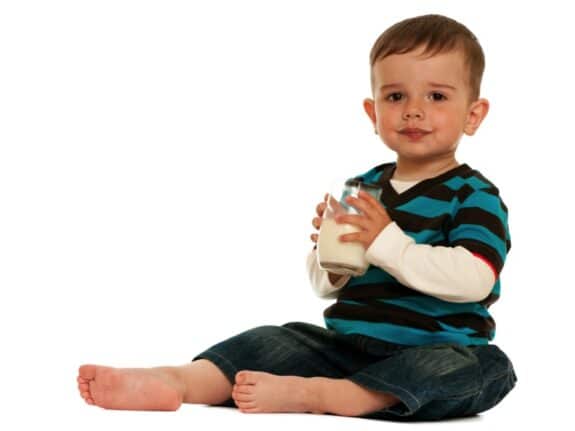If you’re a parent, you’ve probably seen “toddler milk” on the television, or in stores. Your pediatrician may have even recommended it if your child is underweight. Comprised mostly of powdered milk, sugar, and vegetable oils, this ultra-processed product can definitely help a child put on a few pounds. The packaging and commercials even suggest you’re giving your child something wholesome. Scientists say you shouldn’t be fooled, however, because these products aren’t anywhere near as healthy or nutritious as you might think.
“Our review found that parents are buying toddler milk because they think it holds nutritional benefits for their children,” said Doctoral student, Ana Paula Richter, who studies health behavior at the UNC Gillings School of Pubic Health. “This belief is not surprising given the prevalence of marketing claims on toddler milk products about the supposed benefits. Unfortunately, these claims are generally not backed up by science.”
If anything, these products could be detrimental to a child’s health because of the sugar and sodium content. They also contain less protein than cow’s milk, and they are completely unnecessary for the health and development of a child. So why are these products flying off the shelves at an alarming rate (220% global increase on sales from 2005 to 2019)?
That’s what Richter and her fellow researchers at Gillings wanted to know.
“The increase in sales is quite dramatic and highlights a need to continue studying the impact toddler milk consumption might be having on nutritional outcomes in children,” Richter said in the May 19 publication of Nutrition Reviews.
Joined by Shelley Golden, Marissa Hall, Lindsey Smith Taillie, Deshira Wallace, and alum Anna Grummon, who is now at the Stanford University School of Medicine, the team analyzed about 45 articles on toddler milk to better understand how the product is being marketed, and why.
Overall, it was determined that parents have their child’s health and best interests in mind; they’re just confused or misled by the packaging and information being given to them.
For example, one study of Latino parents in the U.S. determined parents most often gave their children toddler milk because they believe it contains extra nutrients (72%), boosts brain development (41%), and supports healthy growth in children (52%).
A second study determined that most U.S. parents think toddler milk is equally healthy (38%) or healthier (44%) than cow’s milk. A third found that 60% of parents believe toddler milk provides their child with nutrients they aren’t getting from other foods and beverages.
The confusion was primarily attributed to packaging and marketing tactics. Seventeen of the reviewed studies indicated that packaging and advertising materials are misleading. Some include the use of health claims alongside photos of happy, healthy babies. Others suggest these products aid with digestion and are a good “safety net” for picky eaters.
“Our study found that the similarity of toddler milk and infant formula advertising and packaging is likely part of a strategy to circumvent laws that regulate how companies advertise infant formula,” Grummon said.
Researchers say it might be time to reign in these unverified claims with stricter regulations.
“Regulation might include guidelines about how companies should label toddler milk to differentiate it from infant formula and to ensure advertising does not contribute to parents’ misperceptions,” said Hall. “For example, regulators could prohibit scientifically unsubstantiated claims, which could prevent caregivers from being misled about the healthfulness of toddler milk.”







